Table of Contents
Daily Current Affairs for Prelims | PT Exam:
Today Current Affairs: 18th December 2019 for UPSC IAS exams, State PSC exams, SSC CGL, State SSC, RRB, Railways, Banking Exam & IBPS, etc.
1.Global Refugee Forum (GRF):
The first Global Refugee Forum (GRF), a two-day gathering of United Nations member states, began in Geneva, Switzerland, on December 17.

About:
- The Forum is jointly hosted by the United Nations High Commissioner for Refugees (UNHCR), the UN Refugee Agency, and the government of Switzerland.
- The GRF will be held every four years at the Ministerial level.
Aim:
- It aims to debate and discuss the response of the world’s countries to the global refugee situation.
- According to the UNHCR, the first GRF is being held “in which the number of refugees has risen to over 25 million people worldwide”.
2. National Broadband Mission (NBM):
The Union Minister for Communications launched the National Broadband Mission.
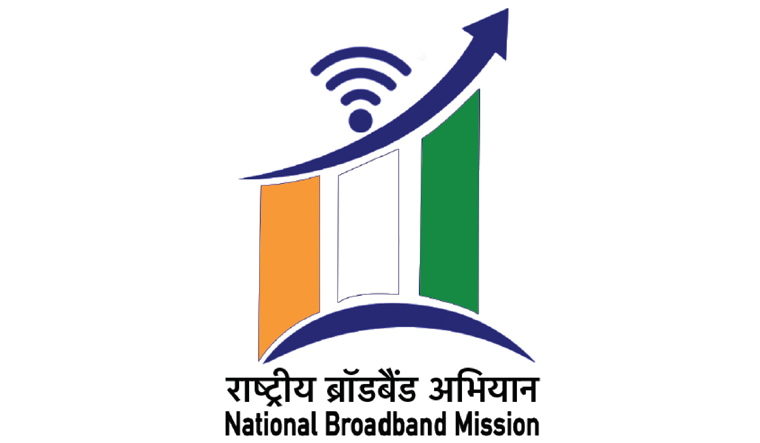
The Mission is part of the National Digital Communications Policy, 2018.
Aim:
- The vision of the Mission is to fast-track the growth of digital communications infrastructure, bridge the digital divide, facilitate digital empowerment and inclusion, and provide affordable and universal access of broadband for all.
- The latest mission aims to offer broadband for all by 2022 including remotely-located hospitals, schools and post offices
Objectives of the Mission:
- Broadband access to all villages by 2022.
- Laying of incremental 30 lakhs route km of Optical Fiber Cable and an increase in tower density from 0.42 to 1.0 tower per thousand of the population by 2024.
- Develop innovative implementation models for Right of Way (RoW) and to work with States/UTs for having consistent policies pertaining to expansion of digital infrastructure including for RoW approvals required for laying of OFC.
- Develop a Broadband Readiness Index (BRI) to measure the availability of digital communications infrastructure and a conducive policy ecosystem within a State/UT.
- Creation of a digital fiber map of the Digital Communications network and infrastructure, including Optical Fiber Cables and Towers, across the country.
3.Bone ossification:
In Mumbai, investigators said they might apply for a bone ossification test to determine whether the prime accused in the murder of Vakola guitarist Bennett Rebello (55) is a minor or not.
Ossification test is guesswork based on the fusion of joints in the human body b/w birth and age 25. If all joints are fused the person must be of 25yrs of age or older.
About:
- Bone ossification, or osteogenesis, is the process of bone formation.
- This process begins between the sixth and seventh weeks of embryonic development and continues until about age twenty-five; although this varies slightly based on the individual.
- There are two types of bone ossification, intramembranous and endochondral.
- Intramembranous ossification directly converts the mesenchymal tissue to bone and forms the flat bones of the skull, clavicle, and most of the cranial bones.
- Endochondral ossification begins with mesenchymal tissue transforming into a cartilage intermediate, which is later replaced by bone and forms the remainder of the axial skeleton and the long bones.
In 2016, the Bombay high court ruled that a bone ossification test is by itself not conclusive proof of age.
4. Internet Shutdown:
The 134th day of the continuing Internet shutdown in Jammu and Kashmir, which began on August 5, the day the erstwhile state was stripped of its special status under Article 370 of the Constitution. This is the longest ever continuous Internet shutdown in the country.
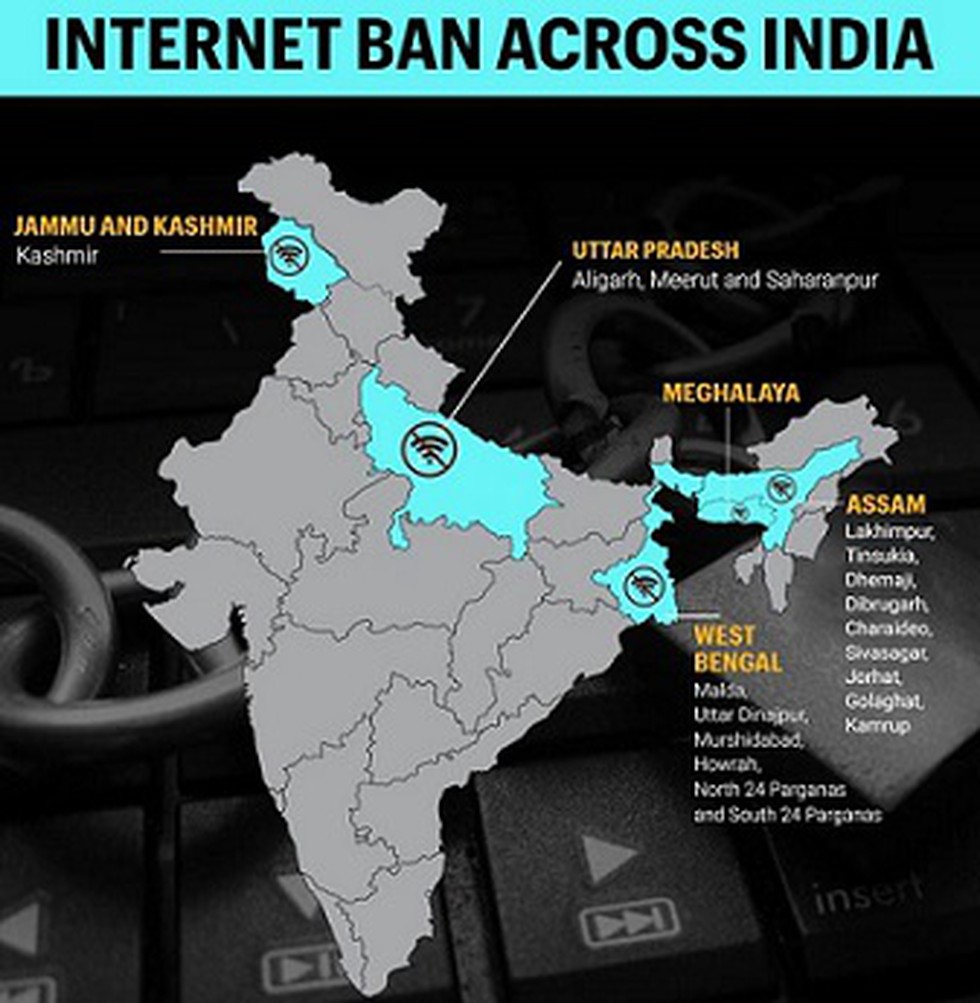
Laws for internet shutdown:
Section 144 of the Code of Criminal Procedure, 1973 has enabled many of the shutdowns in the recent past. It gives the District Magistrate or any other executive magistrate empowered by the state government the power to issue orders to “maintain public tranquility”.
Section 5(2) of the Indian Telegraph Act, 1885, allows central and state governments to prevent the transmission of messaging during a “public emergency or in the interest of public safety”, or “in the interests of the sovereignty and integrity of India, the security of the state”, etc.
5. No State Wise Minority Classification: SC
The Supreme Court has dismissed a plea seeking guidelines to “identify and define” religious minorities in every State to protect their culture and interests.
The petition sought to recognize Hindus as minorities in the States where they are low in population.
Currently, the linguistic minorities are identified on a state-wise basis thus determined by the state government whereas religious minorities are determined by the Central Government.
A linguistic minority is a group of people whose mother tongue is different from that of the majority in the state or part of a state.
However, the Supreme court ruled that languages are restricted state-wise but religion is beyond all borders, especially political borders. Thus, religion needs to be considered on a pan-India basis and not state-wise.
Constitutional Provisions:
The term “Minority” is not defined in the Indian Constitution. However, the Constitution recognizes only religious and linguistic minorities.
- Article 29: It provides that any section of the citizens residing in any part of India having a distinct language, script or culture of its own, shall have the right to conserve the same.
- Article 30: Under the article, all minorities shall have the right to establish and administer educational institutions of their choice.
- Article 350-B: Originally, the Constitution of India did not make any provision with respect to the Special Officer for Linguistic Minorities. But, the Seventh Constitutional Amendment Act of 1956 inserted Article 350-B in the Constitution.
6. Packaged Foods Breach Salt and Fat Limits:
A recent analysis by the Centre for Science and Environment (CSE), an array of packaged snacks and fast foods breach safe limits of salt and fat content.
CSE relied on the concept of the Recommended Dietary Allowance (RDA) to calculate the safety limits.
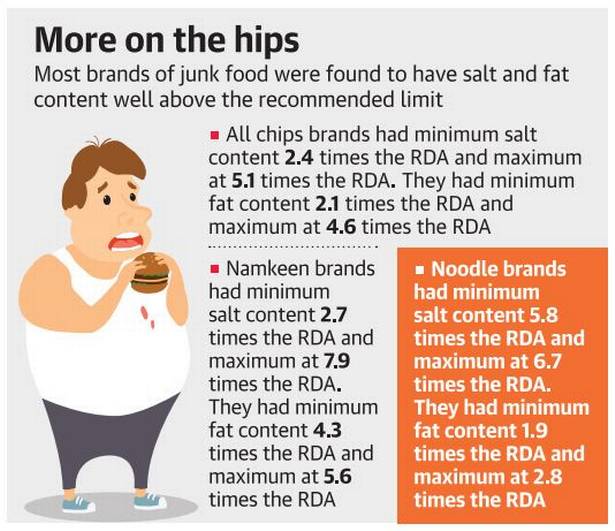
Recommended Dietary Allowance:
- RDA is a daily ceiling on the amount of salt, fat, carbohydrates and trans fats.
- It is based on scientific consensus and has been agreed upon by expert bodies such as the World Health Organisation and the National Institute of Nutrition in India.
- According to RDA, ideally, an adult should not consume more than 5 gm of salt, 60 gm of fat, 300 gm carbohydrate and 2.2 gm of trans fat on an everyday basis.
Centre for Science and Environment(CSE):
It is a public interest research and advocacy organization based in New Delhi. CSE researches lobby for and communicates the urgency of development that is both sustainable and equitable. It was established in 1980.
Key Points:
- CSE analyzed samples were collected from grocery stores and fast-food outlets in the city.
- It found out that given the size of servings and the amount of nutrients per 100 gm, a single packet of the packaged items had more salts and fats than the recommended limits.
- The CSE concluded that all of the popular snacks and fast foods should display a ‘Red Octagon’ on the front of the pack.
- Red Octagon is a warning symbol employed in packaged foods in Chile and Peru. It has a number and the name of the food component within that indicates how widely off the RDA a particular ingredient is.
- The food industry is opposing the move because all of the packaged food which was tested would come under the red mark.
- The regulations, as of now, don’t apply to fast foods such as burgers and pizzas, even though they were included in the CSE analysis.
7. International Migrants Day: December 18.
Theme: WeTogether.
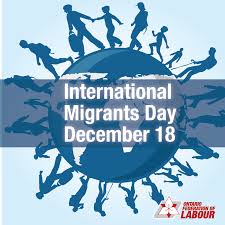
About:
- The United Nations (UN) International Migrants Day is annually held on December 18 to recognize the efforts, contributions, and rights of migrants worldwide.
- It is celebrated through the UN-related agency International Organization for Migration (UN Migration).
- This date was chosen because it was on 18 December 1990 that the UN adopted the International Convention on the Protection of the Rights of All Migrant Workers and Members of Their Families.
- In 2019, the number of migrants globally reached an estimated 272 million, 51 million more than in 2010.
8. Three Capitals for Andhra Pradesh:
The Chief Minister of Andhra Pradesh recently hinted that the State could have three Capitals for decentralized development.
Key Points:
The state can have three capitals — legislative, executive and judicial.
- Visakhapatnam: which has the infrastructure, can be considered for being the executive capital without much investment.
- Amaravati: can be retained as the legislative capital.
- Kurnool: can be considered as the judicial capital.
The decision will be taken after discussing the details, logistics, and reports by reputed consultancy firms.
8. The Indian peacekeepers serving in South Sudan have been awarded :
The Indian peacekeepers serving in South Sudan have been awarded the United Nations (UN) medal for their service and contribution to building peace in the country.

UN Peacekeeping:
- UN Peacekeeping helps countries navigate the difficult path from conflict to peace.
- It deploys troops and police from around the world, integrating them with civilian peacekeepers to address a range of mandates set by the UN Security Council (UNSC) and the General Assembly.
UN Peacekeeping and India:
- Currently, there are more than 6,700 troops and police from India who have been deployed to UN peacekeeping missions, the fourth-highest amongst troop-contributing countries.
- More than 200,000 Indians have served in 49 of the 71 UN peacekeeping missions established around the world since 1948.
- India has a long tradition of sending women on UN peacekeeping missions.
- In 2007, India became the first country to deploy an all-women contingent to a UN peacekeeping mission.
- Indian peacekeepers have served in UN peacekeeping missions around the world.
9. Lok Sabha Strength:
Former President Pranab Mukherjee said that the number of seats in Lok Sabha should be increased to 1,000 from the present 543, and advocated a corresponding increase in the number of MPs in Rajya Sabha and state legislatures.
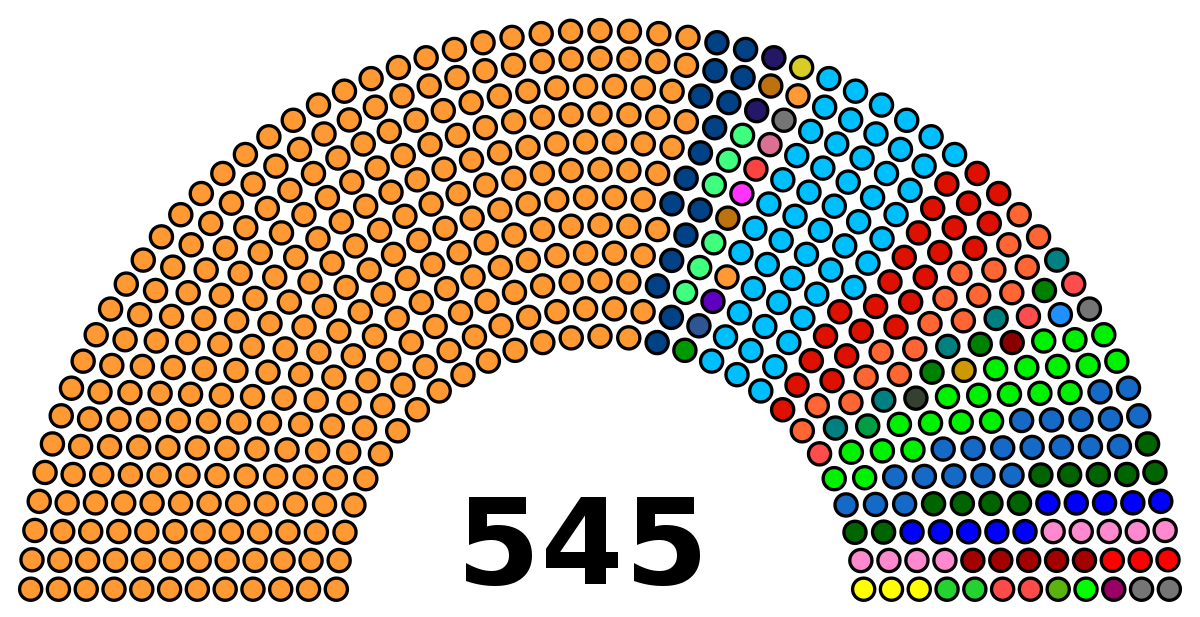
About:
- Article 81 of the Constitution defines the composition of the House of the People or Lok Sabha. It states that the House shall not consist of more than 550 elected members of whom not more than 20 will represent Union Territories.
- At present, the strength of the Lok Sabha is 543, of which 530 have been allocated to the states and the rest to the Union Territories.
- The last time the strength of the Lok Sabha was revised was in 1977, which was based on the 1971 census that put the population at 55 crores.
Important :
- Under Article 331, the President could nominate up to two Anglo-Indians if he/she felt the community was inadequately represented in the House.
- The Constitution (126th Amendment) Bill passed by Parliament last week, while extending the reservation for SC/STs, did away with the provision for the nomination of Anglo Indians to Lok Sabha and some state Assemblies. This has brought the strength of Lok Sabha down to 543 now.
10. Rare Earth Metal Mining:
The International Rights Advocates (IRA) has filed a lawsuit against US tech giants over the death of child laborers in cobalt mines in the Democratic Republic of Congo.
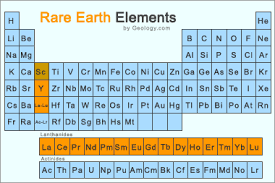
DR Congo produces 60% of the world’s supply of cobalt and is the world’s largest producer of the rare metal, which is crucial for making batteries used in mobile phones and electric vehicles.
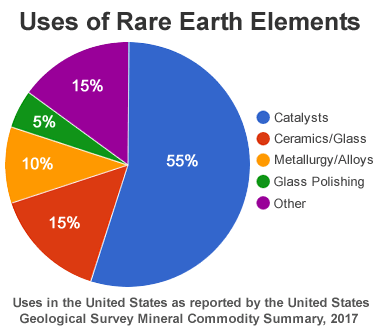
Rare Earth Minerals:
- Rare earth is a series of chemical elements found in the Earth’s crust.
- These minerals have unique magnetic, luminescent, and electrochemical properties and thus used in many modern technologies, including consumer electronics, computers, and networks, communications, health care, national defense, etc.
- They are called ‘rare earth’ because earlier it was difficult to extract them from their oxides forms technologically.
- They occur in many minerals but typically in low concentrations to be refined in an economical manner.
11. Religion and living arrangements around the world (Pew research):
Pew Research Center analysis released a new report titled “Religion and Living Arrangements Around the World.” The report analyses how Household living arrangements, how many people share a dwelling and how these people are related, varies by religion.
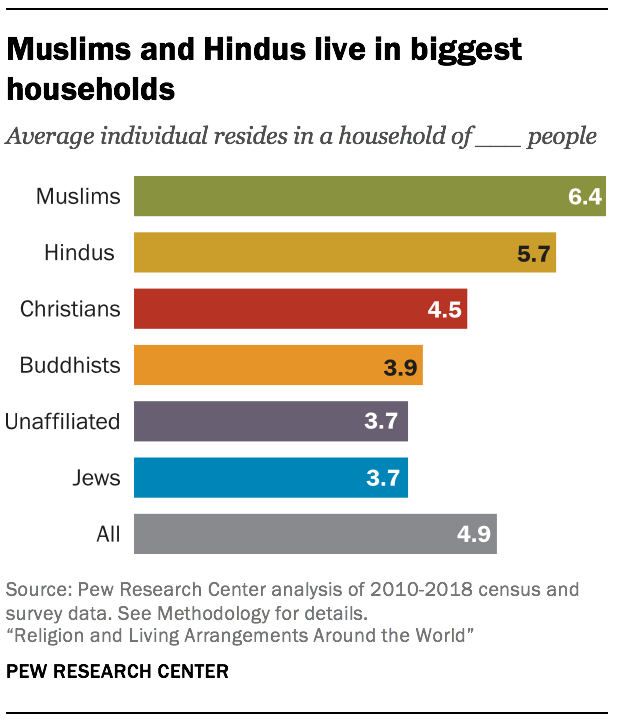
Report:
- Worldwide, Muslims live in the biggest households. The average Muslim lives in a home of 6.4 people, followed by Hindus (5.7), Christians (4.5), Buddhists (3.9), the religiously unaffiliated – also known as “nones” (3.7) – and Jews (3.7).
- Extended-family households – where relatives such as aunts, parents, and grandparents live together – are the most common living arrangement around the world. This arrangement accounts for 38% of all people, including a majority of Hindus (55%).
- Worldwide, Jews are the most likely to live alone (10%), while Muslims and Hindus are the least likely to do so (1% for each).
- Christians are the most likely to live in single-parent households.
- Buddhists are the least likely to live in two-parent families.
- Women, regardless of their religious affiliation, are more likely than men to be single parents.
12. The white-yellow star in the constellation:
On December 17, 2019, the International Astronomical Union (IAU) named a white-yellow star in Sextans Constellation as “Bibha” and its planet as “Santamasa”
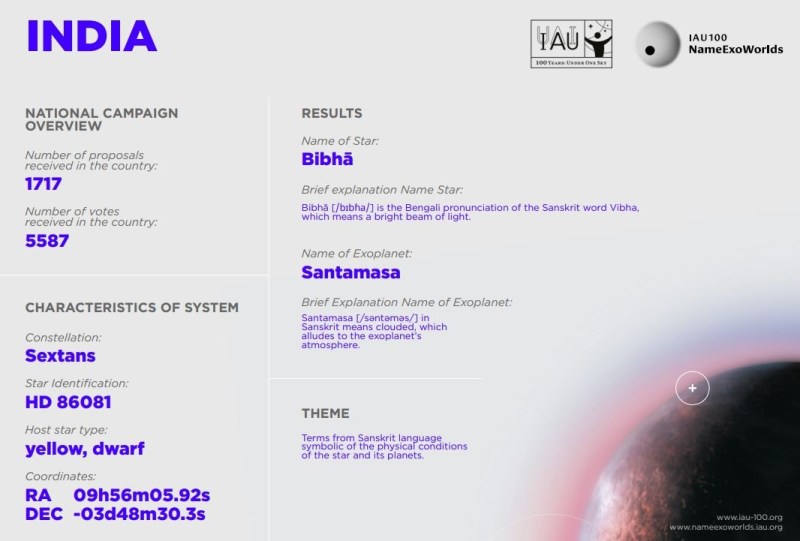
About:
- The star has been named Bibha honoring Indian Woman Scientist Bibha Choudhury who discovered subatomic particle pi-meson. Bibha means a bright beam of light in Bengali. The name Santamasa in Sanskrit means clouded. The name is appropriate as the planet’s atmosphere is clouded.
- The IAU that celebrated its 100th birth anniversary on July 28, 2019, allowed every country to give a famous name to selected pair of exoplanet and its host star.
Bibha star:
- Bibha is an aging star that is 6.2 billion years old and Santamsa is its only planet.
- The mass of the planet is expected to be 1.5 times as that of Jupiter and is very hot. Santamasa completed its revolution around its star in just about 2.1375 days.
13.NITI Aayog: Plans to include eggs, chicken, and fish in PDS supply:
The Government of India thinks tank Niti Aayog on December 18, 2019, announced that it is considering options to include fish, chicken, and eggs in the PDS (Public Distribution System). The move is expected to be included in Niti Aayog’s 15-year Vision Document to be published in 2020 and be effective from April 1, 2020.
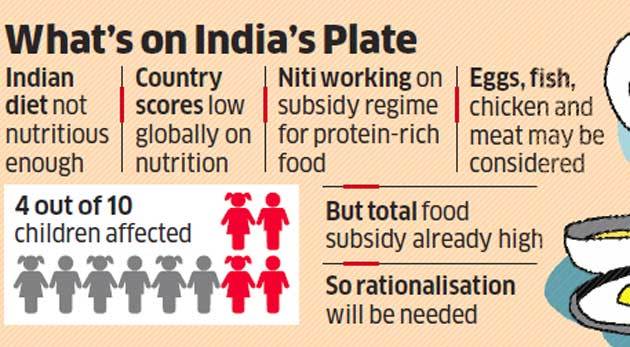
Aim:
- The aim of the move is to include one or more nutritious food items under the food subsidy program.
- This will widen the list of food items along with coarse grains, rice, wheat, and pulses.
- The think tank believes that supply oils, spices, and sugar under PDS are unhealthy.
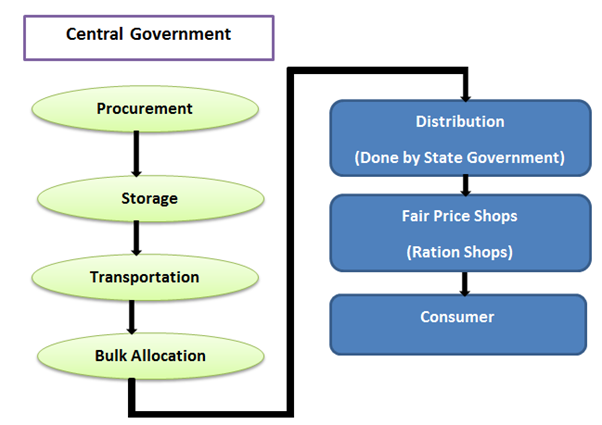
About Niti Aayog:
- The NITI Aayog is a policy think tank of the Government of India, established with the aim to achieve sustainable development goals with cooperative federalism by fostering the involvement of State Governments of India in the economic policy-making process using a bottom-up approach
- Formed: 1 January 2015
- Objectives: Foster involvement and participation in the economic policy-making process by the State Governments of India.
14. AMRUT( extended by 2 years):
The Government of India extended the deadline of its flagship scheme AMRUT (Atal Mission for Rejuvenation and Urban Transformation) by two more years.
The mission was launched in 2015 by PM Modi promising 139 lakh water connections and 145 lakh sewer connections by March 2020. The expenditure of the mission was estimated as Rs 77,640 crores.
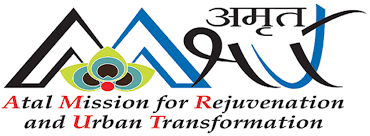
Highlights:
According to Data Ministry of Housing and Urban Affairs, in the last five years, 2,316 projects have been completed so far at an expense of Rs 7,195 crore.
The ministry also says that 46% of water connections and 28.3% of sewer connections have been achieved between June 2015 and December 2019.
The government of India has so far implemented the mission, prioritizing water connections to households.
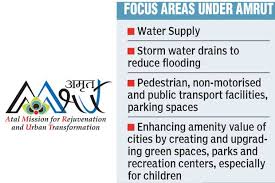
After its launch, Rajasthan was the first state to submit its State Annual Action Plan (SAAP). The plan is submitted by the state governments to the center. With the help of the plan, the center formulates city level estimation of budget required to avail water supply, draining system, sewerages, digital and internet facilities, industrial and transport facilities, etc.
15. ICMR Guidelines on Gene Therapy:
The Indian Council on Medical Research has issued guidelines on Gene Therapy.
The aim of the guideline is to enable the stakeholders to comply with the Research and development of Gene Therapeutic Products being produced and tested inside the country.
Guidelines:
- The guide includes scientific and ethical considerations that are allowed in gene therapy.
- It explains the responsibilities of investigators, sponsors, institutions.
- It also lists considerations like quality assurance, manufacturing, and control, etc.
- The guidelines give a clear overview of the rules to be followed during clinical trials.
The guide also explains the principles to hold while signing international collaboration and procurement of Genetic Therapeutic Products (GTP).
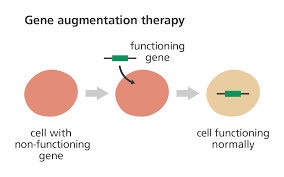
The GTP are entities that deliver nucleic acid by various means for therapeutic benefit to patients.
16. Smog Tower Project:
The Supreme Court of India ordered the Centre and the Delhi Governments to hasten the pilot project of setting up smog towers at Connaught place.

Smog Towers:
- Smog Towers are air purification structures that are designed to work as air purifiers.
- They are fitted with multiple air purifiers.
- These purifiers cleanse the air as it passes through them.
- It is a successful project and China has fitted two smog towers in the city of Beijing and Xi’an.
- The tower is being developed in Delhi by Kurin systems called the “Kurin Cleaners”
About the towers:
The purifiers will be 20-feet wide and 40-feet tall. They will have the capacity to clean 32 million cubic meters of air in a day. A single tower will cover a 3-km radius and is said to have impacts on 75,000 lives of Delhiites.
17. Post-Partum Haemorrhage (PPH):
An advisory was issued by the Union Health Ministry to States to adopt the Gujarat model of “non-interventional approach during the final stages of labor” as the best obstetric practices. PPH is the leading cause of maternal mortality in India.
Post-Partum Haemorrhage:
- Postpartum hemorrhage (PPH) is defined as a blood loss of 500 ml or more within 24 hours after birth.
- PPH is the leading cause of maternal mortality in low-income countries and the primary cause of nearly one-quarter of all maternal deaths globally.
- Once a baby is delivered, the uterus normally contracts and pushes out the placenta.
- After the placenta is delivered, these contractions help put pressure on the bleeding vessels in the area where the placenta was attached. If the uterus does not contract strongly enough, these blood vessels bleed freely.
WHO’s Recommendations:
- The WHO-recommended strategy is that of “active management of the third stage of labor” (AMTSL).
- The third stage is the time between the delivery of the baby and the expulsion of the placenta and its duration could be approximately six to 30 minutes.
- WHO recommends the use of uterotonics (drugs to contract the uterus and reduce bleeding) as the best critical measure.
18. NASA will launch rover “Mars 2020” in 2020:
The National Aeronautics and Space Administration (NASA) will launch rover ‘Mars 2020’ in 2020. “Mars 2020” will explore a landscape shaped by water which is the ‘Jezero Crater’, the site of an ancient delta. ‘Mars 2020’s arm has the same reach as ‘Curiosity’s arm. ‘

Mars 2020’s’ turret weighs 99 pounds (45 kilograms) more than Curiosity’s because it carries larger instruments and a larger drill for coring and has many other changes in the physical design.
19. Lt General Manoj Mukund Naravane to be next Army chief:
- Vice Chief of the Army Lt Gen Manoj Mukund Naravane will be the next Chief of Army Staff (28th) of the Indian Army.
- Lt Gen Naravane will succeed Gen Bipin Rawat, who will retire on the 31st December this year.
- Naravane was commissioned into the 7th battalion, the Sikh Light Infantry Regiment in June 1980.
- During his career, he has been awarded the Param Vishisht Seva Medal (2019), Ati Vishisht Seva Medal (2017), Sena Medal and Vishist Seva Medal (2015) for his service.

20. Pradhan Mantri Ujjwala Yojana (PMUY):
CAG report raises concerns about Ujjwala scheme.
Concerns raised:
- There is the issue of low consumption, diversions and considerable delays in the supply of cylinders.
- Encouraging the sustained usage of LPG remains a big challenge.
- Analysis for 3.18 crore PMUY beneficiaries as of 31 December 2018 revealed that refill consumption declined to 3.21 refills per annum.
- There are also deficiencies such as the issuance of connections to unintended beneficiaries, and problems with the software of the state-run oil marketing companies for identifying intended beneficiaries and inadequacies in the de-duplication process.

Recommendations made by CAG:
- There should be scrutiny of the entire LPG database to identify and restrict anomalies.
- Aadhaar numbers of all adult family members of existing, as well as new beneficiaries, should be entered to make de-duplication effective.
- Appropriate measures in distributors’ software should be put in place to restrict issuance to ineligible beneficiaries.
Other important daily current affairs:
1. GeM Samvaad: Government e-commerce portal GeM has launched a national outreach program called ‘GeM Samvaad’, to bring on-board more local sellers. The outreach program will take place from 19 Dec 2019 to 17 Feb 2020 and will cover all States and Union Territories (UTs) of the country. It was launched by Commerce Secretary Anup Wadhawan in New Delhi.
GeM Samvaad outreach program will involve local sellers and stakeholders across the country to facilitate the on-boarding of local sellers on the marketplace while catering to specific requirements as well as the procurement needs of buyers.
2. The first SEZ (Special Economic Zone) at Sabroom: The Government of India approved the first SEZ (Special Economic Zone) at Sabroom, Tripura in October 2019. Recently, it was announced that the SEZ will primarily focus on agro-based food processing.
The SEZ will focus on rubber-based industries like threads, tires, bamboo industries, textile and apparel industries, and agri-food processing industries.
3. A Memorandum of Understanding (MoU) was signed between India’s Council of Scientific & Industrial Research (CSIR), and France’s National Centre for Scientific Research (CNRS) to establish a framework for cooperation between two institutes towards promotion and support of scientific and technological research.
4. ICC Annual Awards: Ellyse Perry Wins Rachael Heyhoe-Flint Award: The International Cricket Council (ICC) announced the Australian all-rounder Ellyse Perry as the winner of the Rachael Heyhoe-Flint Award for ICC Women’s Cricketer of the Year. The 29-year-old has also been named as ICC Women’s ODI Player of Year.
5. R N Ravi to hold additional charge as governor of Meghalaya: Nagaland Governor R N Ravi has been given additional charge of Meghalaya state. The decision has been taken by the President of India in the wake of the “absence of leave” of Tathagata Roy (Governor of Meghalaya).
6. The World Design Organization (WDO) is all set to launch its new global program World Design Protopolis in Bengaluru. It aims at implementing holistic progress in megacities across the world and making them sustainable project aims to measure the progress of the city, attract investments and solve problems so that the city becomes a better place for the citizens.
7. According to the Income Tax Department, it will be mandatory to link Permanent Account Number (PAN) with Aadhaar by 31st Dec 2019.
8. Madhya Pradesh Chief Minister Kamal Nath has inaugurated the International Film Festival in Shilpkala village of Khajuraho.
9. Veteran film actor Danny Aiello (86-years) passed away: He was nominated for an Academy Award for his role as pizzeria owner Sal in Spike Lee’s “Do the Right Thing. He also played Madonna’s father in the 1986 video for Papa Don’t Preach.
10. The legendary Bollywood actress and a social worker Gita Siddharth passed away. The actress was best known for her role as Amina in MS Sathy ’s 1973 classic ‘Garm Hava’. Gita made her debut in Gulzar’s 1972 film, Parichay.
11. Search engine giant Google has revealed that it’s powerful mapping service, Google Earth now covers more than 98% of the world. It has captured 10 million miles of Street View imagery, a distance that could circle the globe more than 400 times.
12. Asian Development Bank (ADB) has signed a US $250 million loan agreement with the Government of India to provide loans to public sector company Energy Efficiency Services Limited (EESL) so as to expand energy efficiency investments in India that will benefit agricultural, institutional and residential consumers.
13. Central Bureau of Investigation (CBI) officer BP Raju was awarded the ‘India Cyber Cop of the Year 2019’ during the Annual Information Security Summit held at Gurgaon, Haryana. He won the award for investigating and cracking a fraud case in an online entrance exam conducted by an engineering college in Rajasthan.
14.‘Khadi Rumal’: Union Minister for Micro, Small and Medium Enterprises (MSME) Nitin Gadkari launched the sale of ‘Khadi Rumal’ stitched by militancy affected women of Nagrota town of Jammu and Kashmir. The aim is to provide employment to the women in the terrorist affected areas as well as create employment opportunities for militancy affected families of J&K.
15.UNSC meet on Kashmir canceled: The meeting was sought after India decided to end the special status of Jammu and Kashmir by abrogating Article 370. However, the meeting was canceled with French supporting India. All over the world, Pakistan is supported only by China, Turkey, and Malaysia over the Kashmir issue.
16. Delhi High Court will plea seeking constitution of a fact-finding committee to inquire into the police crackdown in the Jamia Milia Islamia University.




